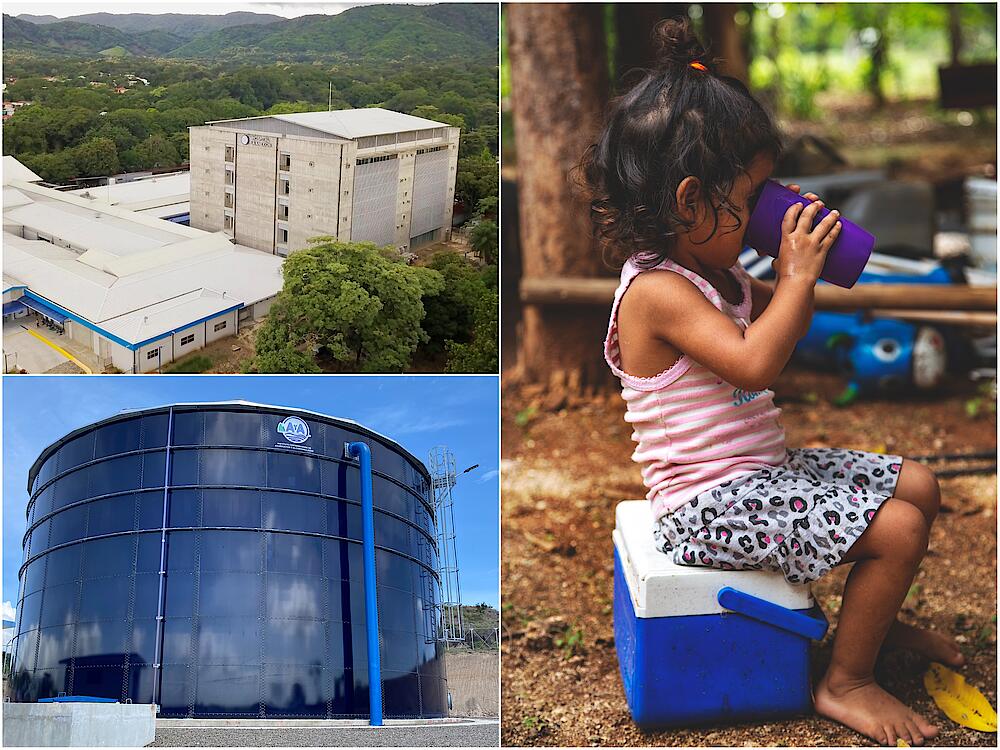CABEI-financed projects in Costa Rica's North Pacific region improve access to water, health services, schools and road infrastructure

• More than US$600 million approved by the multilateral to this Costa Rican province will improve the quality of life of its inhabitants.
San José, July 25th, 2023 - The province of Guanacaste is located in the North Pacific of Costa Rica, known for its beautiful landscapes and beaches that attract thousands of tourists every year, as well as for its large extensions of land ideal for cattle raising and grain cultivation, which are catalogued as "la pampa" or "la bajura" (the lowlands).
One of the areas with the greatest potential for productivity and competitiveness in the country, but also one of the most affected by the effects of climate change, such as aridity and water scarcity, both for human consumption and irrigation, as well as for real estate and tourism development.
Contributing to improve the quality of life of its inhabitants, the Central American Bank for Economic Integration (CABEI) has executed in recent years three important projects to improve and expand aqueducts in some of the most populated cantons such as Nicoya, Bagaces and Liberia, which currently benefit more than 55,000 people with access to uninterrupted and clean water resources in their homes and businesses.
In this same line, CABEI approved one of the highest financing in its history for the development of the Water Supply Project for the Middle Tempisque River Basin and Coastal Communities: "Water for the Bajura", which consists of the construction of hydraulic, civil and mechanical structures for the generation and supply of water for irrigation, water for human consumption and for the future generation of energy in the Chorotega region for the benefit of more than 700,000 people.
Also, for several years, Guanacastecos have had improved health services, since CABEI financed the construction and equipment of the new hospitalization and specialties tower at La Anexión Hospital, a work that benefits more than 130,000 inhabitants of the communities of Nicoya, Santa Cruz, Hojancha and Nandayure with the strengthening of outpatient services, operating rooms, specialties, among others.
In addition to the aforementioned projects, CABEI recently approved the highest financing in its history for the "Emergency Comprehensive and Resilient Infrastructure Reconstruction Program", which contemplates at least 30 interventions including roads, bridges and schools that are vulnerable or at imminent risk in cantons such as Tilarán, Santa Cruz, Cañas, Liberia, La Cruz, Carrillo, Nicoya and Abangares, benefiting more than 82,000 inhabitants. The execution of these works is expected to begin soon with the approval of the loan by the Congress of the Republic.
The investment contributed for all the developed and in progress works amounts to more than US$600 million and is framed within CABEI's Human Development and Competitiveness strategic axes, through which the multilateral contributes to the generation of effective social capacities for real social inclusion by ensuring minimum welfare conditions in health, education and other essential services; as well as in the fulfillment of Sustainable Development Goals (SDGs) such as access to clean water, improved nutrition, and employment generation.



